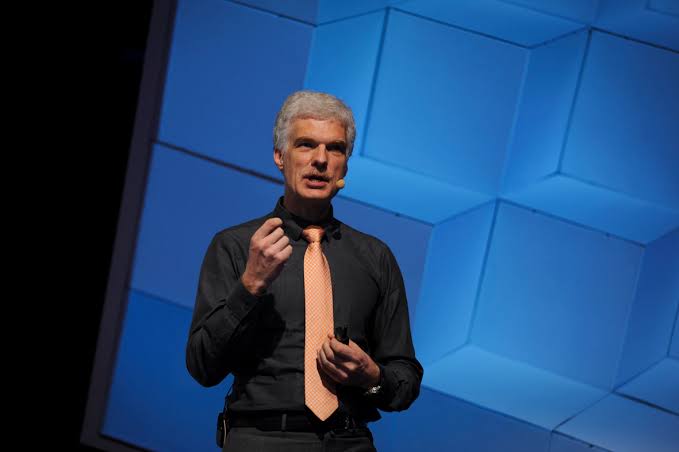Jack Ma Speaks on Essential Ingredients for Success in Life
China’s richest man and e-commerce billionaire Jack Ma has been teaching on the basic traits needed to succeed in life, and in business especially in this age of Internet of Things (IoT). According to Jack Ma who recently relinquished his position as Chairman CEO of e-commerce giant Alibaba.com, there is need for people to focus on continuous education, education he said is the “most important and critical issue” of our time. His concern: the world is changing fast, but education is not. He noted that his formula, however, is not to focus on curriculum or accountability, but on students’ capacity to love.

Speaking on his formula, Jack Ma said that “if you want to be successful, you should have very high emotional quotient (EQ), a way to get on with people”. He highlighted that “if you don’t want to lose quickly, you should have good intelligent quotient (IQ),” adding that “if you want to be respected, you should have love quotient (LQ)—the quotient of love,” he concluded. “The brain will be replaced by machines, but machines can never replace your heart.”
Read also:Alibaba Founder, Jack Ma, To Meet Ethiopian Startup Founders On Monday
Jack Ma spoke that his formula fits well with the theme of the conference in Paris, where the OECD released the latest results of its worldwide test of 15-year-olds and discussed how to move education systems from traditional exam factories to places where kids learn content, but also self-knowledge, empathy, teamwork and agency.
The head of the OECD’S education unit Andreas Schleicher, applauded Jack Ma’s “radical” approach. Educators talk about the need for holistic reform a lot, but business leaders more often focus on education as a means to train future workers (rather than nurture well-rounded humans). Schleicher said Ma’s key message was spot on: we’ve spent a lot of effort on how we feed people—that is, the education they receive—but not enough on what we feed them.
Read also:Jack Ma Foundation Gives Out $1 Million to Entrepreneurs in Africa Netpreneur Prize Initiative
In the future, Ma said everything had to be on the table: teachers, classrooms, and students. Classes will not be in discreet 40-minute units, teachers will not be the ones with all the knowledge, and educators will emphasize asking the right questions, not just getting the right answers. “If you focus on standardization, everything can be replaced by machines,” he said. Many educators dispute this approach, arguing that knowledge should not be undermined, and that schools should focus on discipline and high academic expectations.
Jack Ma professed himself an “amateur” educator. But he is not without experience: he failed his university exams a few times and eventually got into a teaching school. Back then, he said, people who failed at traditional achievement—top universities—became teachers. He said that teaching imparted important lessons he used as CEO—he even dubbed his job “chief education officer” at Alibaba. “I learned everything I learned from being a teacher,” he said. “Inspire students. Trust students. Believe in students. Enable them.”
Read also:Nigerian Startup LifeBank Wins Jack Ma Foundation’s First Africa Netpreneur Prize
Pointing out the essential ingredients for quality education. He suggested investing more in early childhood, when kids are building skills and values, and less in universities, when values are already set. “Please put more resources on the front and not in the back,” he said, suggesting kindergarten and primary schools have tremendous leverage to shape kids. He also advocated supporting teachers more robustly. “If we respect teachers we respect knowledge and we respect the future,” he said. Increase their pay and help headmasters with leadership training, since 60% of teachers leave the profession because they don’t like their headmasters.
He said education needs to change its key performance indicators, namely exams. He often asks students why they work so hard for their exams and they always say it is to get into university and go on to get a job. But at Alibaba, he said, they have to retrain university graduates to do their jobs well.
“University does not mean you are guaranteed a job,” he said, adding that he doesn’t hire from MIT and Harvard because of the names, but because the people come “ready to learn their whole lives.” In a memorable zinger, he said that a university degree was nothing more than a “receipt for the tuition paid.” He joined the zeitgeist by calling for kids to better confront failure. “It is not natural for people to help you,” he said. “You need to learn to be rejected and refused.” Indeed, he was rejected from Harvard 10 times.
Finally, he suggested education had to become more global, and more focused on teamwork. (China, he noted, was terrible at this: it succeeds in individual sports but not team ones.) The way to accomplish this is more arts and dance, painting and team sports. He’s started a school where there is no after-school tutoring but there are after-school sports.
Last century, he said, was won by muscle, while this one will be won with wisdom. Or as he put it another way, “last century we win by caring about myself, this century we win by caring about others.”
Kelechi Deca

Kelechi Deca has over two decades of media experience, he has traveled to over 77 countries reporting on multilateral development institutions, international business, trade, travels, culture, and diplomacy. He is also a petrol head with in-depth knowledge of automobiles and the auto industry

